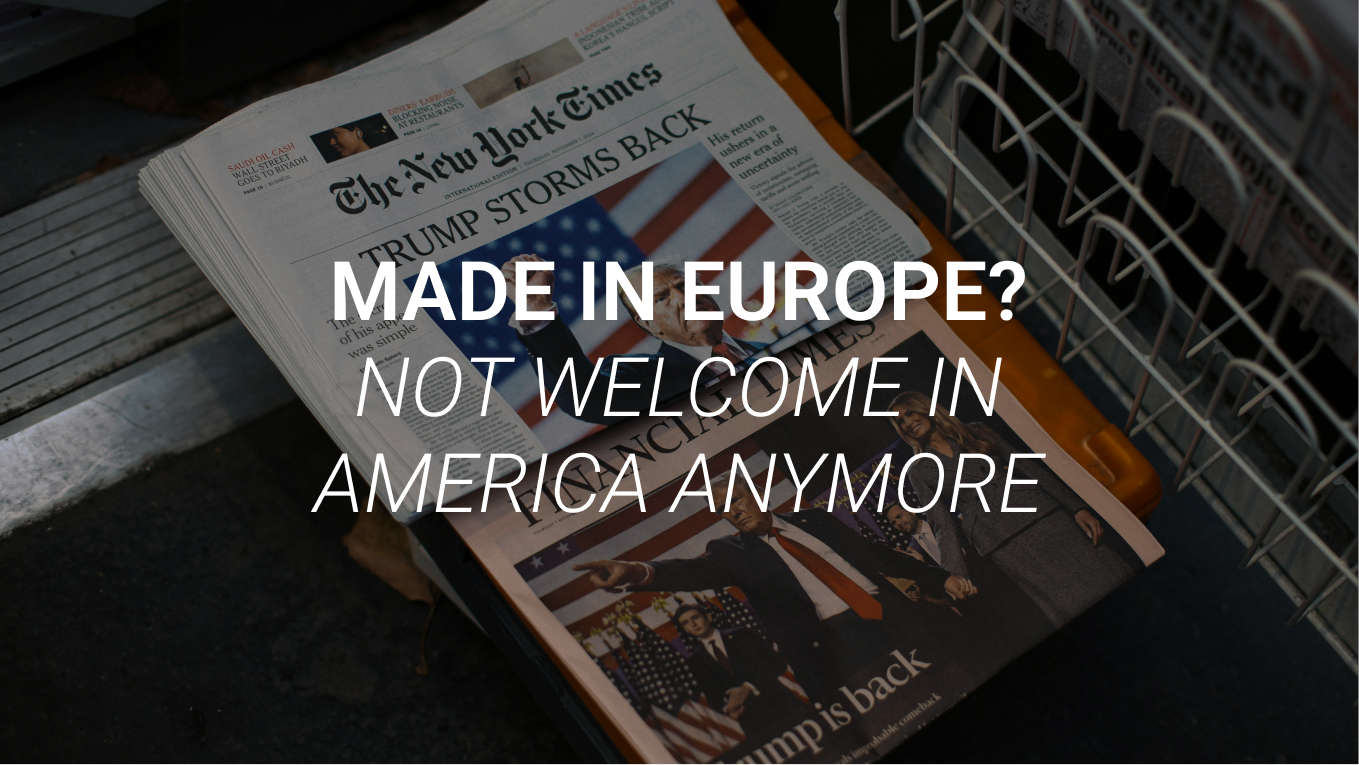Trump’s Tariffs Hit Hard: The Auto Sector in the EU and UK Under Pressure
 30.06.2025
30.06.2025
 6 mins to read
6 mins to read

Recently, the President of the United States, Donald Trump, introduced a new round of tariffs as part of policies aimed at protecting American industries. These trade measures focused on key sectors for many global economies, such as imports of cars, car parts, steel, and aluminium. Under Section 232 of the Trade Expansion Act, a 25% tariff was imposed on imported vehicles, which triggered significant effects on the global automotive industry.
The European manufacturers and exporters based in the UK were forced to confront some serious questions: Will supply chains and supplier relationships be disrupted? Would costs rise? And would long-term strategies need to change? In this article, we explore how Trump’s trade decisions have impacted the automotive sectors in Europe and the UK, and what was done in response.
An overview of Trump’s 2025 – EU & US tariffs
The U.S. began tightening its trade policy back in 2018 when the President Trump administration imposed tariffs of 25% on steel and 10% on aluminium imports. These measures were justified on national security grounds and marked the beginning of a broader shift in U.S. trade strategy.
The new trade policy introduces a 25% tariff on all imported passenger vehicles and many car components entering the U.S., effective from March 27, 2025.
The European Union quickly responded to the above with countermeasures:
- A 20% tariff on selected U.S. goods, temporarily reduced to 10% during negotiations.
- Threats of the World Trade Organization (WTO) proceedings and potential legal action, arguing the U.S. actions violated international trade rules.
Impact on European automotive industry
In 2023, the EU exported approximately €56 billion worth of vehicles to the United States. This made the U.S. the single largest non-European destination for European cars. German automakers such as BMW, Mercedes-Benz, and Volkswagen have been hit especially hard.
Key consequences include:
- Over €500 million in additional costs were reported by German automakers in April 2025 alone, reflecting the immediate financial strain imposed by the new duties;
- BMW projected losses of up to €1 billion for the year, attributing this figure directly to tariff-related disruptions, including increased logistics costs and reduced profit margins;
- S&P Global lowered its U.S. vehicle sales forecast by 1.2 million units for 2025, citing a decline in affordability and limited availability as direct effects of the trade measures.
Some manufacturers accelerated exports ahead of the tariff deadline, stockpiling inventory in the U.S. Longer-term strategies are also being reconsidered, with some automakers now evaluating whether shifting production to North America could help them avoid ongoing tariff costs.
A fragile position of the UK auto sector
Although no longer part of the EU, the UK’s automotive sector remains very much dependent on exports to the US and EU parts.
In 2024:
- The UK exported 101,000 vehicles to the U.S., worth £7.6 billion – around 17% of total UK car exports.
- Jaguar Land Rover, one of Britain’s largest exporters, temporarily suspended U.S. shipments, directly affecting operations in Solihull and Halewood.
Due to exposure to U.S. trade barriers, up to 137,000 UK jobs are now considered at risk, with potential GDP losses of £9.8 billion by 2030. Also, April 2025 data revealed a 75% year-over-year decline in UK commercial vehicle exports to the U.S. The Bank of England has warned that persistent trade tensions could constrain monetary policy and undermine investor confidence.
Supply chain and strategic responses in the automotive sector
Faced with rising costs and increasingly unpredictable trade dynamics, automakers across Europe and the UK have begun to implement a range of strategic adjustments. One major response has been the consideration of production relocation to North America, particularly among premium brands with significant U.S. market share. In the short term, several German manufacturers also accelerated shipments to the United States ahead of the tariff deadline, stockpiling inventory to soften the initial financial impact. At the same time, many firms are working to diversify their market exposure, seeking new opportunities in Asia, the Middle East, and Africa to compensate for projected losses in the U.S. Finally, the European Commission is pursuing legal action through the World Trade Organization, aiming to challenge the legitimacy of the U.S. measures on the grounds of international trade law violations.
| Country/Region | 2025 Export Volume to U.S. | Tariff-Induced Impact | Strategic Response |
| Germany | €26 billion | €500M/month in added cost (Reuters) | Early stockpiling; local U.S. production considered |
| UK | £7.6 billion | 137,000 jobs at risk, 75% drop in exports | Shipment halts; government lobbying |
| Slovakia | €4–5 billion | Up to 20,000 jobs at risk | Emergency talks; investment in alternatives |
Table: Summary of Tariff Impacts on EU and UK Automotive Sectors
Wider economic implications – tariffs hit
The effects of the U.S. auto tariffs extend well beyond the factory floor. According to analysts at Nomura, continued trade tensions could reduce eurozone GDP growth by 0.2 to 0.3 percentage points in 2025.
The UK may see a smaller but still notable decline of 0.1 to 0.2 points. Furthermore, central banks may be forced to consider rate cuts to support investment and consumer demand. These steps might be a necessity even if inflation remains unstable due to higher import costs.
Smaller economies relying on exports are especially vulnerable. For instance, Slovakia ranked as the most car-dependent country per capita, could face up to €5 billion in lost automotive exports and as many as 20,000 job losses within the next three years.
Summary of the trade war
Trump’s 2025 reciprocal tariffs have introduced a serious challenge for the automotive industries globally. Rising costs, disrupted supply chains, and shrinking U.S. exports are forcing manufacturers to reshape their operations. Many are trying to adapt through production relocation, policy lobbying, or expanding into new markets. However, for many in the industry, navigating this new landscape will require not just adjustment but transformation. The outcomes of these shifts may redefine the region’s automotive future for years to come.
Sources
https://www.axios.com/2018/03/01/trump-declares-his-trade-war-targets-steel-aluminum
https://www.congress.gov/crs-product/IN12519
https://www.businessinsider.com/china-responds-to-eu-electric-vehicle-tariffs-lawsuit-2024-11?IR=T
https://www.ft.com/content/7c5b43e2-9e59-49fe-9d6b-4ee8f2007e33
https://nypost.com/2025/06/20/business/audi-weighs-us-plant-to-placate-trump-report
https://www.wsj.com/world/europe/trumps-tariffs-slam-eastern-europes-detroit-ff20ac0a






